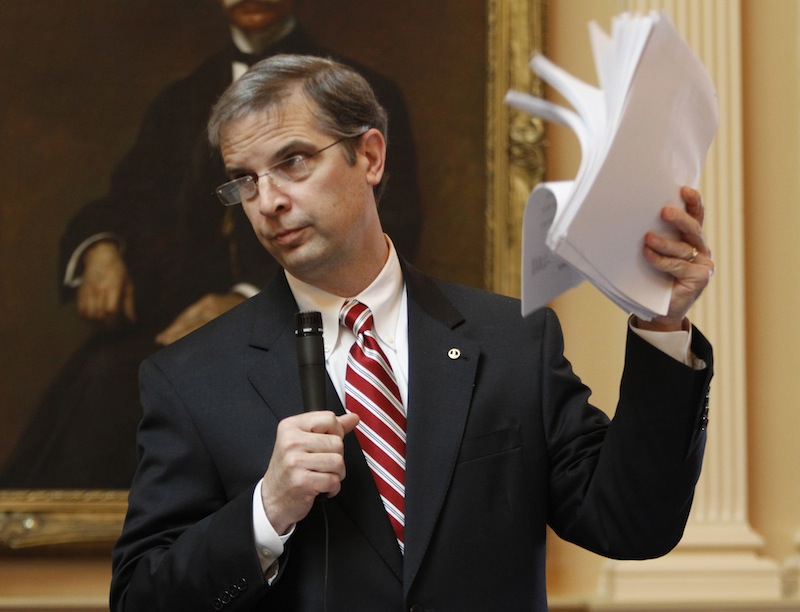A recount of the razor thin attorney general race in Virginia is officially on.
Virginia State Sen. Mark Obenshain’s (R) campaign formally filed for a recount Wednesday. The move, long expected, came just two days after the Virginia State Board of Elections certified Obenshain’s opponent, state Sen. Mark Herring (D), as the winner of the race by a tiny 165-vote margin. Because Herring’s margin of victory is within 1 percent of the more than 2 million votes tallied in the race, either Obenshain or Herring could have requested a recount.
So here’s what happens now.
A three-judge panel is formed for overseeing the election process. The panel, made up of the chief judge of the Richmond Circuit Court, Bradley B. Cavedo, and two other judges appointed by the Supreme Court of Virginia will oversee the recount. Most of the rules for the recount are already established but the panel will handle setting some of the procedures for the recount as well as any complaints either the Obenshain campaign or Herring campaign has about how the recount is going. The panel will hold hearings roughly a week after the Obenshain campaign’s recount petition has been filed to establish the specific dates and procedures for the recount.
The Obenshain campaign said in a conference call with reporters Wednesday morning that it expected the recount to happen sometime in mid-December and that it would likely take a day, possibly two, for all the ballots to be recounted.
This recount will be different from previous Virginia recounts in that all ballots counted through optical scan will be rescanned again. That’s in contrast to the 2005 attorney general recount between Bob McDonnell (R) and Creigh Deeds (D). State law during that recount said that the three-judge panel had to re-tabulate scanned ballots by hand. In 2008, Deeds sponsored legislation changing the law so all scanned ballots went through optical scan machines again instead of a hand recount. All other types of ballots cast in the race, including provisional and absentee, will be hand counted again.
The State Board of Elections has also issued directions to vote counters for so-called “undervote” ballots (ballots that aren’t completely filled out) and “overvote” ballots (ballots where the voter filled in bubbles for both candidates but also indicated a preference for one). Those ballots will be also be recounted by hand.
During the original tallying Republicans criticized how votes were counted in Fairfax County, the state’s most populous and which Herring won. Voters there were given extra time to appear at voting locations and argue the validity of provisional ballots cast. Republican attorneys argued that the extra time violated the equal protection rights of provisional voters. That argument seemed like something Obenshain’s campaign would bring up later to try and stop those ballots from being counted in a recount but on Wednesday lawyers for the Republican state senator said there are no current plans to fight recounting the Fairfax votes.
The chances that Obenshain could flip the race in his favor aren’t great.
“No one can say with certainty. I think there is a real but small chance,” George Mason University Political Science Professor Michael McDonald told TPM in an email.
Research suggests that reversals of election outcomes are rare. In the 2005 attorney general recount, McDonnell actually added to his total margin of victory after the recount.
Still, there’s one more option that Obenshain has to fight Herring’s victory if a recount ends up in Herring’s favor. The process is called a “contest.” Obenshain would have to argue before the Republican-controlled Virginia General Assembly that the election was conducted improperly. An election contest would ultimately be decided by a majority of a joint session of the Virginia Senate and House of Delegates, which could declare either candidate the winner or void the election and hold a new one.
But there are still risks involved in a contest. Virginia Republicans would probably get substantial political blowback for handing Obenshain the race contrary to majority rule (even if it’s a small majority). Right now, the Obenshain campaign is just hoping that the recount will come out in his favor.






